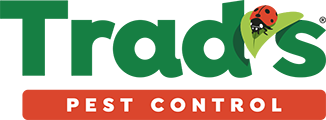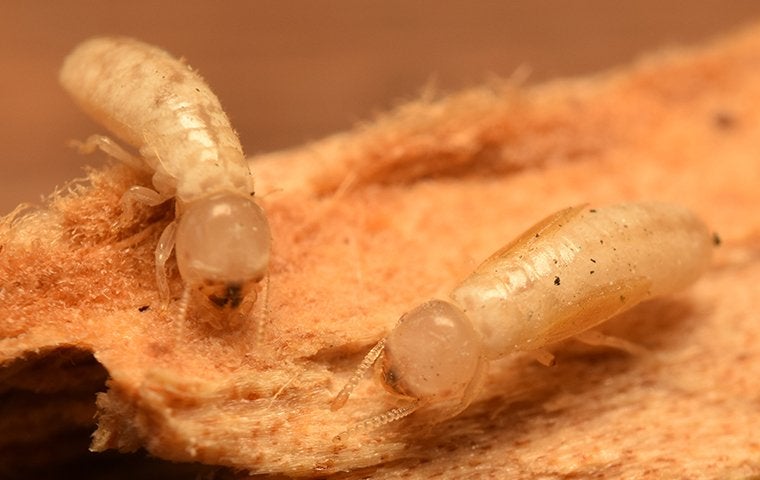Most people live in Florida for a reason. Perhaps it’s the access to beaches, the mild winters (if you can call them that), or Disney World. Chances are you don’t live here for the bugs – especially the termites.
Drywood termites are considered one of the most destructive pests in Florida. While there are several kinds of termites, there are two that you are likely the most familiar with: subterranean and drywood.
Like their subterranean termite counterparts, drywood termites feed on and live in wood. However, these two types differ because drywood termites are larger, and there are fewer of them in the colony.
If you have suspicions you have a termite problem on your Jacksonville property, schedule a drywood termite treatment with Trad’s Pest Control today!
Signs Of Drywood Termites On Your Property
It’s not always easy to detect a drywood termite infestation since these pests live within the wood they are feeding on. Once they have moved in and taken up residence in your walls or wood furniture, seeing the signs of termites can be pretty difficult. It can even take five to seven years for a termite colony to create any noticeable damage.
Here are a few indicators you can keep an eye out for to determine if you think you may have a termite problem:
- Swarms: After a drywood termite colony has grown for about four years, the queen will release a pheromone to encourage a swarm. These colonies produce swarms of only ten to 100 insects, which is relatively small. And with swarms only taking place once or twice a year, they are easy to miss.
- Feces: Termite droppings, or frass, are light tan to almost black, sand-like, six-sided small fecal pellets found in tiny mounds. These mounds can resemble piles of coffee grounds or sawdust.
- Discarded Wings: Termites lose their wings after they swarm. Finding several same-size wings, especially near a light source such as a window sill, can indicate a termite problem.
- Other Signs: Peeling or bubbling paint on anything made from wood can be signs of termites moving into your property. Also, if you hear a hollow sound when you tap on a wall, you should bring in professionals for termite removal.
If you spot any of the above signs, you should reach out to a pest professional immediately.
Drywood Termites Will Not Go Away On Their Own
As much as you wish for the termites to go away on their own, they simply will not. There are a few DIY drywood termite treatment methods you can try:
- Install poisoned bait stakes along the perimeter of your house.
- Sprinkle boric acid on the infested wood.
- Put the proper pesticide around your house to prevent termites from entering.
- Create a barrier using diatomaceous earth.
These options involve chemicals and can be dangerous if not done correctly. Hiring a professional pest control company is the most effective solution for termite removal.
The Most Effective Solution To A Drywood Termite Infestation
Regardless of the kinds of termites you have, there is almost no effective DIY treatment for them. They won’t go away on their own, and they can inflict tremendous damage to your home and property. The best method for treating a drywood termite problem is to contact your local pest control professionals at Trad’s Pest Control.
We offer premium termite treatments for your Jacksonville properties and the surrounding areas. Contact our pest control experts today for your free termite inspection.
How To Prevent Future Drywood Termite Infestations
First and foremost, receiving regular termite inspections from the qualified experts at Trad’s Pest Control is THE most effective solution. We will work with you to address conditions around your home, such as wood-to-ground contact and excess moisture. An example of this is relocating your firewood away from your home.
Other ways to prevent future termite infestations is sealing any holes or cracks in exposed wood and using screens to seal all your vents properly.
Again, working with Trad’s Pest Control is the safest and most effective way to ensure your home is free from these pesky wood munchers. Contact us today!

